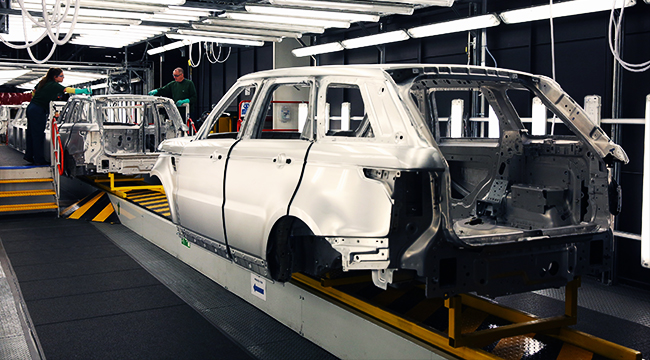
Tax reform is being sold as an overhaul designed to create jobs. It’s in the name, even: the Tax Cuts and Jobs Act of 2017.
But business executives say the bill will drive them to invest in automation, the type that will allow them to cut jobs in the future.
The issue at hand is a provision of the bill that allows full and immediate depreciation of capital spending. This change will allow most capital expenditures, such as investments in machines and building upgrades, to be written off against profits in the first year.
The change, set to last for five years, is far more generous to corporations than current law, which allows businesses to write off the costs of new equipment gradually over years.
While the provision is expected to provide substantial benefit to the commercial real estate and oil industry, the provision could also spur a wave of investment in automation in the manufacturing industry.
Firms that supply automated machines and other assembly line robots, including Rockwell Automation Inc and Emerson Electric Co, have in recent weeks celebrated the tax reform provision, expecting increased revenue as clients order more products.
John Stroup, the chief executive of Belden, discussed the capital expenditure provision with J.P. Morgan vice president Ashwin Kesireddy earlier this month during an investor meeting.
“I would expect there to be an acceleration of capital investment in certain categories if, in fact, the tax plan is passed with the provisions you just mentioned,” said Stroup. “There’s already a number of factors why people are investing in automation as an example. This would just be another one where they could expense the investment and get the added benefit of the tax shield, which is substantial,” he added.
A similar exchange occurred on the last call with investors hosted by Emerson Electric, which produces robots and parts used on the factory floor, including machines used for automotive manufacturing. David Farr, the chief executive of the company, said he expects increased orders from his company’s automation department if the tax bill passes with beneficial provisions on capital expenditures.
The instant capital expenditure provision has been long sought and championed by the manufacturing industry.
Rick Schreiber, head of BDO USA, an accounting and consulting company, and a board member to the National Association of Manufacturers, explained recently how tax reform will shape the future of manufacturing.
“This is not the gloom and doom of jobs going away,” Schreiber told U.S. News and World Report. “It’s getting rid of all those unskilled, carpal-tunnel-inducing, heavy-lifting-type jobs. You can now have a co-bot — a robot that collaborates with a human to do all those mundane tasks or all that heavy lifting or reduce workers’ compensation-type claims and costs.”
Many others on Wall Street are expecting similar moves.
Eric Marshall, a portfolio manager with Hodges Capital, told FOX Business that one of the first moves by corporate executives will be to invest in technology and automation at the expense of hiring new workers. “It’s going to be disruptive but it can be a positive and a negative,” said Marshall.
Stocks for companies that specialize in selling automation systems and other assembly-line technology have soared in response to rising prospects for the tax bill.
President Donald Trump, meanwhile, has sold his tax reform effort as a job plan. “Our plan can be simplified in three simple words: jobs, jobs, jobs,” the president said while rallying support for the legislation at the White House.
The post Tax Bill Will Lead to More Automation, Executives Boast to Wall Street Investors appeared first on The Intercept.
